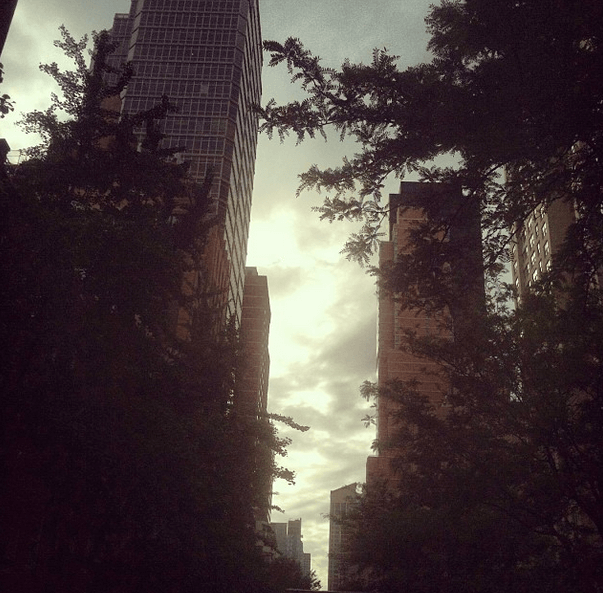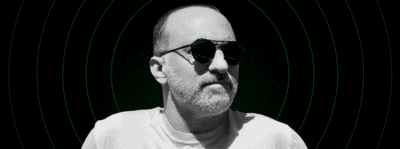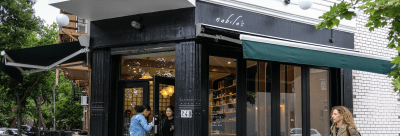On the Lost Art of Knowing Where You Are


You are here.
When I was a child, I remember getting into the backseat of a taxi with my mother and brother and hearing her tell the cabbie, “375 Riverside Drive, please.” That was all she needed to say—no cross streets, no clarification of what neighborhood we were headed to, no anxiety in her voice because she wasn’t sure if the driver would know to go up- or downtown. All she needed to say was the building address, and, just like that, we’d be whisked home, without even a moment’s hesitation from the cabbie over which side of the street our destination was on. (This is, of course, made easier when the other side of your street is a park, but also, most drivers knew enough to even go around the block to 110th Street, where our apartment building’s main entrance was.) By the time I was a teenager, this had changed—at the very least, cross streets needed to be given, but frequently I found myself giving explicit directions, particularly when it came to navigating the cow path-streets of the West Village, and had stopped relying on cabbies to know much of anything. Eventually, though, I stopped having any money for cabs, so it wasn’t as much of a problem.
Today, of course, the issue of knowing how to get from point A to point B is moot. The ubiquity of smartphones has rendered it possible for even the newest New Yorker to navigate even the neighborhoods that fall furthest from the grid. And so it goes with taxi drivers: Yesterday, the New York Times reported that prospective cabbies will no longer need to pass an exam including “a rigorous set of geography questions” in order to get their license. They will still need to take a test, but it will focus more on things like safety instead of questions about which direction even-numbered streets run in Manhattan. (It’s east. Most of the time.)
The reason for the updated test isn’t hard to guess: GPS is available to pretty much everyone now, and with the rise of Uber and Lyft, it’s been demonstrated that customers are perfectly willing to be driven around by people who don’t have city-issued licenses. And there’s little doubt that there’s something comforting about the fact that the task of knowing the best way to get somewhere relatively obscure isn’t subject to human error, and that technology now precludes you from driving around in circles looking for an address as the meter keeps going up and up and up.
And yet. It’s hard not to feel, if not nostalgic exactly, sad at least, that there could soon be a day when there will be only a few people left who know how to get from the Brooklyn Bridge to Valentino Pier without checking Google Maps. Or, as one cabbie told the Times, “When you don’t know the city, it’s a big disadvantage. If this means new drivers aren’t going to know where Radio City Music Hall is, that’s unforgivable.” Everyone is more than happy to go on and on about how the rapid rise of technology has led to a lack of real connection when it comes to social ties, and even if that’s true to a certain extent (and false to another), the fact that we’ve become virtually dislocated in our own homes because we have lost the ability to know where we are without the aid of a screen is at least as troubling.
Knowing where you are, and knowing how to get where you want to go, should not be some lost art, or a trick you pull out to impress your friends. New York has always been the kind of city that, despite much of Manhattan’s orderly grid system, fosters a lack of orientation—there are few other places where it is common to go below ground and be whisked away to a whole new world without having any clue what lay above you as you traveled to your destination—but it also encourages its residents to explore, and come up with their own tricks for knowing where they are. Part of New York’s charm, even, is its ability to bestow ownership of itself upon just about every person who first realizes that simply by looking for the Empire State Building or 1 World Trade Center, they can figure out which way is North and which is South. Is there any better New York feeling, after all, than being able to help someone else find their way? This is, of course, a thing you can only do if you already know where you are. I’m far from a Luddite, and have relied on my phone as much as anyone else when it comes to navigating unknown city-territory (what’s up Queens), but I also think it’s a gift to be able to know well the place in which you live, a gift we shouldn’t take for granted. So, you know, here’s to getting lost once in a while, at least as a means to better figure out where it is you really are.
Follow Kristin Iversen on twitter @kmiversen
You might also like 




















